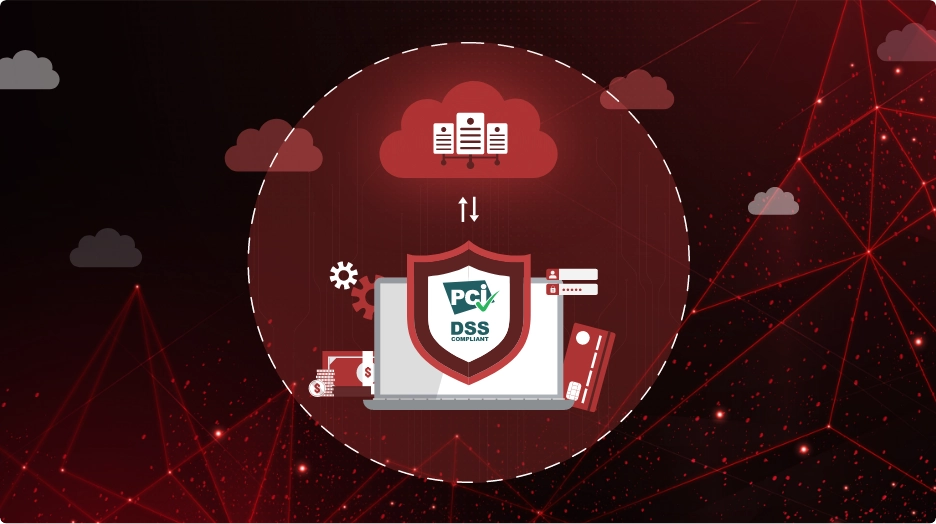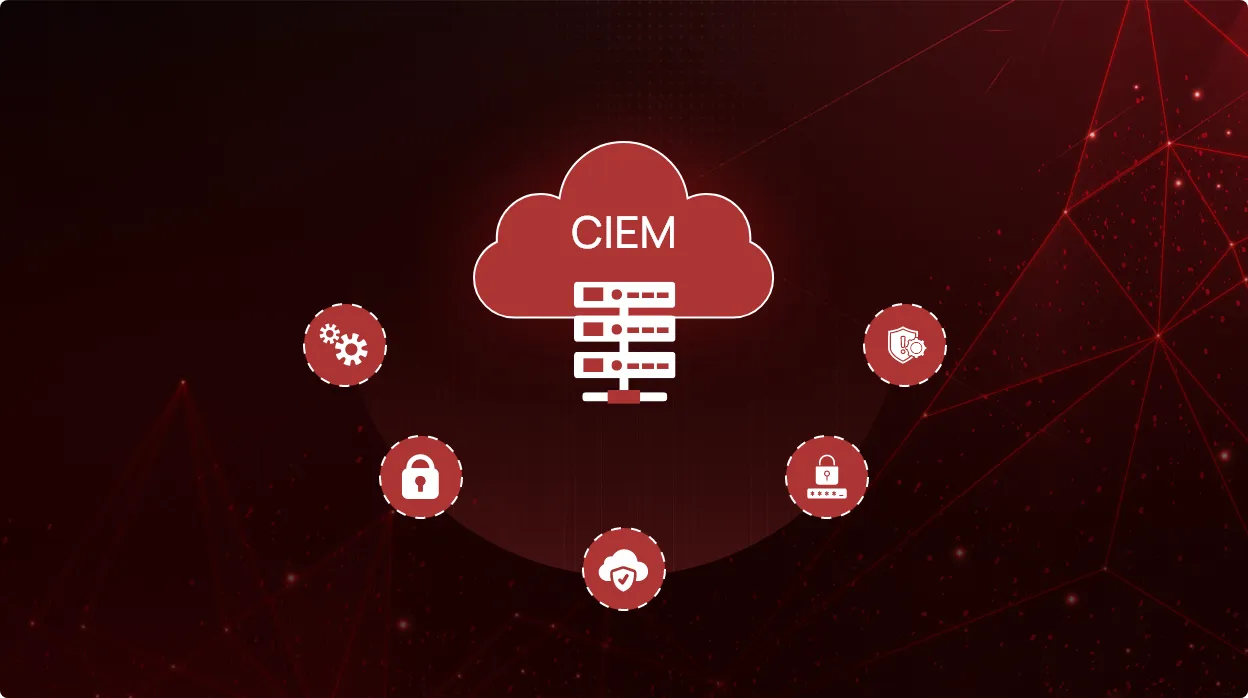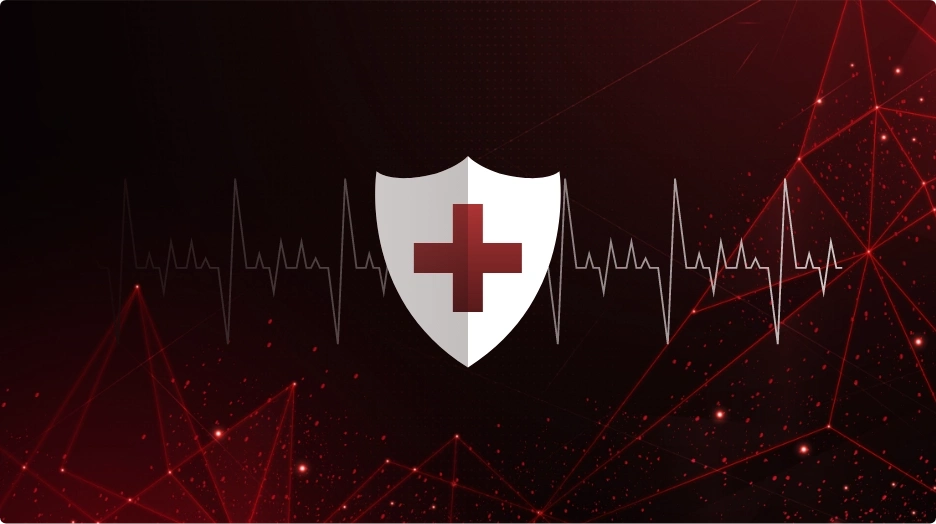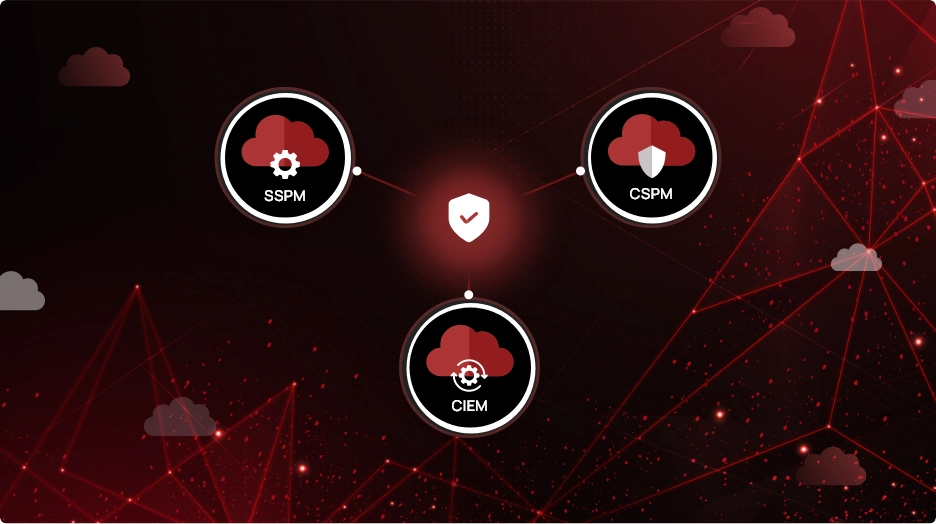PCI DSS Compliance in the Cloud

PCI DSS, or the Payment Card Industry Data Security Standard, is a set of rules ensuring the safe handling of credit card information. It outlines strict security measures to prevent fraud and protect sensitive data during transactions.
As more and more businesses migrate to the cloud for storage and processing, the need for PCI DSS compliance sees exponential growth. Ensuring adherence to PCI DSS standards in the cloud is not just a regulatory requirement; it’s a critical step in safeguarding financial transactions, maintaining customer trust, and protecting against the severe consequences of non-compliance.
What is PCI DSS?
PCI DSS, or the Payment Card Industry Data Security Standard, is a comprehensive set of security guidelines designed to safeguard sensitive credit card information. It establishes a framework for organizations to follow, ensuring the secure processing, storage, and transmission of cardholder data. PCI DSS covers various aspects, including network security, access controls, and encryption, providing a robust defense against potential data breaches. Compliance with PCI DSS is mandatory for businesses handling credit card transactions, irrespective of their size, to protect both consumers and the integrity of the payment ecosystem.
Importance of PCI DSS
For organizations processing credit card payments, adherence to PCI DSS is not merely a regulatory obligation; it is essentially the foundation of trust. The standard acts as a shield against cyber threats and fraudulent activities, mitigating the risks associated with unauthorized access and data breaches.
By complying with PCI DSS, businesses demonstrate a commitment to customer security and confidentiality, fostering trust among clientele. Moreover, PCI DSS compliance helps organizations avoid severe financial penalties, legal ramifications, and the reputational damage that follows non-compliance. In essence, PCI DSS is not just a set of rules; it is a crucial safeguard ensuring the integrity of financial transactions and preserving the reputation of businesses in the digital age.
Implications of Non-compliance
- Legal penalties: Legal repercussions may follow, with authorities taking legal action against organizations failing to meet PCI DSS standards. Legal battles can be prolonged and result in significant financial strain.
- Fines: Non-compliance with PCI DSS can lead to substantial fines imposed by regulatory bodies. These fines vary based on the severity and duration of the non-compliance.
- Reputational fallout: A breach in PCI DSS compliance tarnishes the reputation of a business. News of security lapses spreads quickly, leading to negative public perception.
- Loss of customer trust: Customers value the security of their financial information. Non-compliance erodes trust, causing customers to question the integrity of the organization. Once trust is lost, rebuilding becomes a daunting task.
In the digital age, where information travels swiftly, the impact of reputational damage can be felt instantly, affecting customer loyalty and the overall success of the business. Failure to adhere to PCI DSS not only affects the bottom line but also jeopardizes the long-term viability of the business.
Staying Compliant in the Cloud
When it comes to cloud computing, each service model presents unique challenges for maintaining PCI DSS compliance:
- SaaS (Software as a Service): Challenges lie in ensuring secure access to applications and data hosted in the cloud. Organizations must address data protection issues and maintain control over user access.
- IaaS (Infrastructure as a Service): Securing the underlying infrastructure is crucial. With IaaS, organizations face challenges related to network security, virtual machine configurations, and the overall integrity of the cloud environment.
- PaaS (Platform as a Service): Challenges in PaaS revolve around securing the development and deployment environment. Application-level security becomes paramount, along with continuous monitoring to detect and address vulnerabilities promptly.
Best Practices for PCI DSS Compliance
SaaS: Emphasize Data Access Controls and Encryption
- Implement robust access controls to limit user access to sensitive data
- Prioritize encryption for data both in transit and at rest within SaaS applications
- Regularly audit and monitor user activities to ensure compliance with PCI DSS standards
IaaS: Focus on Securing Infrastructure and Implementing Robust Authentication
- Employ network security measures to protect the cloud infrastructure
- Implement strong authentication mechanisms, including multi-factor authentication (MFA) for accessing IaaS resources
- Regularly update and patch virtual machines and components to address vulnerabilities
PaaS: Highlight Application-Level Security Measures and Continuous Monitoring
- Integrate security into the development lifecycle of applications hosted on PaaS platforms
- Implement runtime application self-protection (RASP) and other application-level security measures
- Continuously monitor and analyze application behaviors to identify and address potential security threats promptly
How Do You Stay Compliant?
Selecting the right cloud service provider (CSP) is pivotal for PCI DSS compliance. Choose a CSP with a proven track record of PCI DSS compliance. Ensure the CSP offers robust security features, including access controls, encryption, and regular audits.
Implementing Secure Authentication and Access Controls
- Enforce strong authentication methods like multi-factor authentication (MFA) and secure password policies
- Implement role-based access controls (RBAC) to limit data access based on job responsibilities
Encrypting Sensitive Data in Transit and at Rest
- Utilize strong encryption mechanisms, such as Advanced Encryption Standard (AES) with a 256-bit key length
- Ensure secure management and regular rotation of encryption keys
Conducting Regular Audits and Risk Assessments
- Regularly review access controls, encryption protocols, and overall compliance with PCI DSS standards
- Identify vulnerabilities through periodic risk assessments and address them promptly
Security Posture Management and PCI DSS Compliance
Cloud security tools play a crucial role in maintaining PCI DSS compliance. CheckRed is one such comprehensive tool designed for both SaaS Security Posture Management (SSPM) and Cloud Security Posture Management (CSPM).
CheckRed – Features and Capabilities
- CheckRed offers continuous real-time monitoring of cloud environments
- The tool provides robust risk detection mechanisms to address potential risks proactively
- CheckRed also generates remediation workflows that will assist in the quick addressing of risks
PCI DSS compliance in the cloud requires careful consideration of CSPs, robust authentication, encryption practices, and ongoing audits. CheckRed enhances security and compliance by offering comprehensive monitoring and risk management, making it an invaluable asset in the pursuit of a secure cloud environment.


